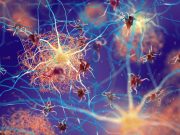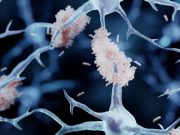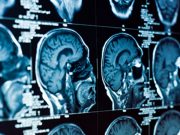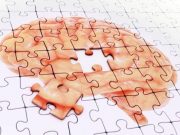Tag: Alzheimer’s
Cognitive Impairment Delayed With Genetic Variant
Onset of cognitive impairment delayed among those heterozygous for the apolipoprotein E3 Christchurch variant
Lifestyle Intervention Can Improve Cognition, Function in Early Alzheimer Disease
Significant correlation seen between lifestyle and both cognitive function and Aβ42/40 ratio
Self-, Partner-Reported Cognitive Decline Linked to Tau
Significant associations seen between self- and study partner-reported Cognitive Function Index and tau driven by elevated Aβ
Benefit of Thick Liquids in Alzheimer Disease and Dysphagia Unclear
Patients receiving thick versus thin liquids less likely to be intubated, more likely to have respiratory complications
Differences ID’d in Tau Burden in Down Syndrome, Alzheimer Disease
Differences in spatial distribution, timing, magnitude of tau burden seen for two genetic forms of Alzheimer disease
Distance to Neurologist, PCP May Explain Alzheimer Disease Disparities
Non-Hispanic American Indian and/or Alaska Native and Hispanic decedents have to travel further to neurologist than non-Hispanic Whites
FDA Delays Decision on New Alzheimer’s Drug
Harmful Association Identified Between Traffic Pollution, Amyloid Plaques
Strongest association seen between fine particulate matter and neuropathology was among those without APOE ε4 alleles
Timing of CSF Biomarker Divergence for Alzheimer Disease, Normal Cognition Varies
Estimated times of divergence of cerebrospinal fluid biomarkers vary from 18 years for Aβ42 to six years for cognitive decline
Lower Alzheimer Risk Seen With PDE5i Initiation for Erectile Dysfunction
Greatest reduction in risk seen for those receiving 21 to 50 phosphodiesterase type 5 inhibitor prescriptions














